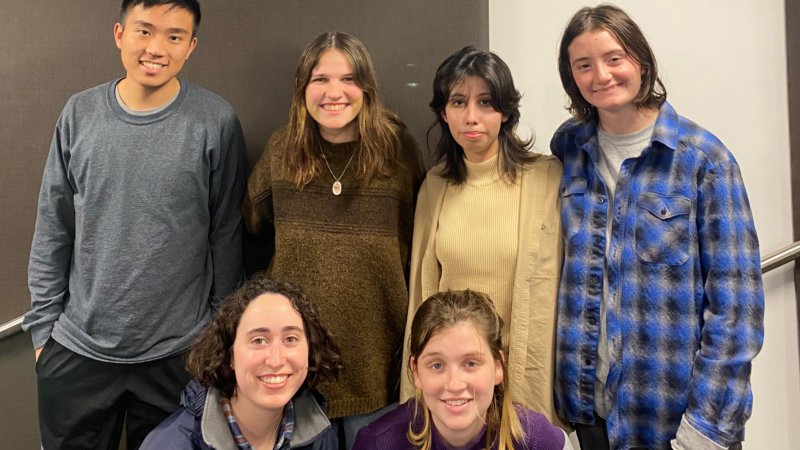The SAR Sustainable Food Team hopes to work toward the UC-wide goal of 25% sustainable food purchases by 2025 by standardizing the processes of obtaining and accounting sustainable food purchases. To accomplish this goal, they plan to audit UCLA Dining’s food purchases and reporting methods in order to make recommendations to improve gaps in sustainable food procurement and accounting.
Previous Sustainability Action Research Teams have focused on Sustainable Food Procurement at UCLA. The 2011 Sustainable Food Systems team developed a comprehensive list of local farms and ranches willing to sell to UCLA, while the 2013 Sustainable Food Systems team searched for farms, ranches, and food distributors that met the University of California Office of the President’s (UCOP) Sustainable Food Criteria for what is now Bruin Plate, UCLA’s health-focused and most popular dining hall. In both cases, UCLA’s demand and food production processes were far too large scale for the local farms and ranches to provide for. That being said, the teams did make very valuable connections with urban farms in the Los Angeles area and larger farms within LA County that can be useful because of support that UCLA and such farmers can provide for one another. Importantly, they also set guidelines for what to look for in local farms and established a rapport with the UCLA Dining team.
The University of California’s (UC) Carbon Neutrality Initiative focuses on reducing greenhouse gas emissions, but does not specifically address food, which makes up a large portion of its emissions. The UC has set goals for sustainable food purchasing through its UC Policy on Sustainable Practices, with a goal of 25% sustainable food purchases by 2030. These purchases are evaluated using standards from the Association for Advancement of Sustainability in Higher Education (AASHE). UCLA’s three main meal providers, ASUCLA, Housing and Hospitality, and Health, have made progress in increasing sustainable food purchases, but saw a drop during the pandemic. As of fiscal year 2021-22, the sustainable food purchase share of Housing and Hospitality slightly recovered to 6% sustainable food and 39% plant-based items. An audit will examine reasons for the slow rate of increase and ways to reach the 2030 goal.
Our central questions are: Why has UCLA’s progress in sustainable food purchases dropped so dramatically since 2019? How can UCLA improve their progress towards reaching the UC-wide 2030 target of 25% sustainable food purchases? To answer these questions, we will perform a comprehensive audit of UCLA dining purchases from the Fiscal Year 2021-2022 to identify errors in data labeling and tracking and to find areas for improvement in sustainable food purchasing. Additionally, we will analyze UCLA’s current vendors, farms, and food production companies to create a potential sustainable vendor list and to increase the percentage of organic and local food purchased. We will engage in interviews with staff at Housing & Hospitality to estimate cost-benefit analysis of sustainable food procurement, budget spent on specific items in recent years, and current actions being taken (i.e., green certifications). Finally, we plan to create a student survey to assess student perspectives on the “Greener by Default” approach of offering vegan and vegetarian options as the first (“default”) choice within dining menus. We also plan to encourage EDI practices by including recommendations for UCLA to buy from diverse and ethical vendors along with our sustainability recommendations.
Stakeholder: Brianna Moncada, UCLA Housing and Hospitality Sustainability Manager
Team Leaders: Chloe Clegg, Emily Cline
Team Members: Sara Lehman, Magaly Santos, Hannah Searles, Lawrence Tran

